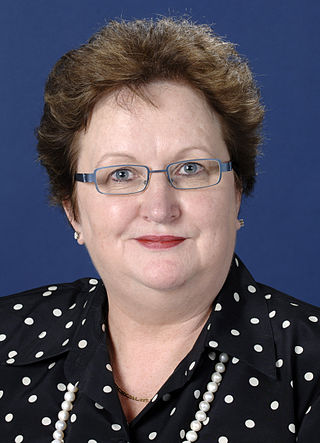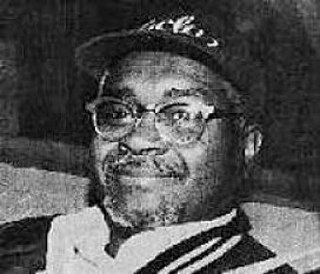Related Research Articles

The International Covenant on Civil and Political Rights (ICCPR) is a multilateral treaty that commits nations to respect the civil and political rights of individuals, including the right to life, freedom of religion, freedom of speech, freedom of assembly, electoral rights and rights to due process and a fair trial. It was adopted by United Nations General Assembly Resolution 2200A (XXI) on 16 December 1966 and entered into force on 23 March 1976 after its thirty-fifth ratification or accession. As of June 2024, the Covenant has 174 parties and six more signatories without ratification, most notably the People's Republic of China and Cuba; North Korea is the only state that has tried to withdraw.
The right of return is a principle in international law which guarantees everyone's right of voluntary return to, or re-entry to, their country of origin or of citizenship. The right of return is part of the broader human rights concept freedom of movement and is also related to the legal concept of nationality. While many states afford their citizens the right of abode, the right of return is not restricted to citizenship or nationality in the formal sense. It allows stateless persons and for those born outside their country to return for the first time, so long as they have maintained a "genuine and effective link".

Amanda Eloise Vanstone is an Australian former politician and a former Ambassador to Italy. She was a Liberal Senator for South Australia from 1984 to 2007, and held several ministerial portfolios in the Howard government. After her resignation from the Senate in 2007, she then served as the Australian Ambassador to Italy until July 2010. Her time as Minister for Immigration was marked by controversies within the Department of Immigration and Multicultural and Indigenous Affairs.

Jeremy Dean Hinzman is an Iraq War resister who was the first American deserter to seek refugee status in Canada.
Freedom of movement, mobility rights, or the right to travel is a human rights concept encompassing the right of individuals to travel from place to place within the territory of a country, and to leave the country and return to it. The right includes not only visiting places, but changing the place where the individual resides or works.
Vivian Alvarez Solon is an Australian who was unlawfully removed to the Philippines by the Department of Immigration and Multicultural and Indigenous Affairs (DIMIA) in July 2001. In May 2005, it became public knowledge that she had been deported, although DIMIA knew of its mistake in 2003. Solon's family had listed her as a missing person since July 2003, and until May 2005, did not know that she had been deported. The circumstances surrounding Solon's unlawful deportation have caused much controversy in the Australian media.
In Canada, a security certificate is a legal mechanism by which the Canadian government can detain and deport permanent residents and all other non-citizens living in Canada.
Robert Jovicic was a long-time resident of Australia who was deported to Serbia and Montenegro, where he became destitute in 2005.

Brian Walters is a prominent Melbourne barrister, writer and advocate for human rights and the environment.

Lorenzo Kom'boa Ervin is an American writer, activist, and black anarchist. He is a former member of the Black Panther Party and Concerned Citizens for Justice. He was born in Chattanooga, Tennessee, and has lived in Memphis, Tennessee, since 2010.

Al-Kateb v Godwin, was a decision of the High Court of Australia, which ruled on 6 August 2004 that the indefinite detention of a stateless person was lawful. The case concerned Ahmed Al-Kateb, a Palestinian man born in Kuwait, who moved to Australia in 2000 and applied for a temporary protection visa. The Commonwealth Minister for Immigration's decision to refuse the application was upheld by the Refugee Review Tribunal and the Federal Court. In 2002, Al-Kateb declared that he wished to return to Kuwait or Gaza. However, since no country would accept Al-Kateb, he was declared stateless and detained under the policy of mandatory detention.

The Australian government has a policy and practice of detaining in immigration detention facilities non-citizens not holding a valid visa, suspected of visa violations, illegal entry or unauthorised arrival, and those subject to deportation and removal in immigration detention until a decision is made by the immigration authorities to grant a visa and release them into the community, or to repatriate them to their country of origin/passport. Persons in immigration detention may at any time opt to voluntarily leave Australia for their country of origin, or they may be deported or given a bridging or temporary visa. In 1992, Australia adopted a mandatory detention policy obliging the government to detain all persons entering or being in the country without a valid visa, while their claim to remain in Australia is processed and security and health checks undertaken. Also, at the same time, the law was changed to permit indefinite detention, from the previous limit of 273 days. The policy was instituted by the Keating government in 1992, and was varied by the subsequent Howard, Rudd, Gillard, Abbott, Turnbull, Morrison and Albanese Governments. The policy is regarded as controversial and has been criticised by a number of organisations. In 2004, the High Court of Australia confirmed the constitutionality of indefinite mandatory detention of non-citizens. However, this interpretation was overturned in a landmark decision, NZYQ v Minister for Immigration, in 2023, with the High Court concluding the practice was unlawful and unconstitutional.
Immigration equality is a citizens' equal ability or right to immigrate their family members. It also applies to fair and equal execution of the laws and the rights of non-citizens regardless of nationality or where they are coming from. Immigration issues can also be an LGBT rights issue, as government recognition of same-sex relationships vary from country to country.

Discussions of LGBT rights at the United Nations have included resolutions and joint statements in the United Nations General Assembly and the United Nations Human Rights Council (UNHRC), attention to the expert-led human rights mechanisms, as well as by the UN Agencies.

Toonen v. Australia was a landmark human rights complaint brought before the United Nations Human Rights Committee (UNHRC) by Tasmanian resident Nicholas Toonen in 1994. The case resulted in the repeal of Australia's last sodomy laws when the Committee held that sexual orientation was included in the antidiscrimination provisions as a protected status under the International Covenant on Civil and Political Rights (ICCPR).
Dr Sheikh Mansour Leghaei is the founder and a director of the Imam Husain Islamic Centre and the School of Islamic Theology in Earlwood, Australia, serving as the imam from 1997 to 2010. He previously served in Nigeria, where in 1992 he opened an Education Centre called Ahul Bayt.
The right to sexuality incorporates the right to express one's sexuality and to be free from discrimination on the grounds of sexual orientation. Although it is equally applicable to heterosexuality, it also encompasses human rights of people of diverse sexual orientations, including lesbian, gay, asexual and bisexual people, and the protection of those rights. The right to sexuality and freedom from discrimination on the grounds of sexual orientation is based on the universality of human rights and the inalienable nature of rights belonging to every person by virtue of being human.
Comilang v. Commissioner of Registration was a 2011–2013 case against the Hong Kong Immigration Department by a former foreign domestic helper who is the sole custodial parent of a child who has permanent residence status in Hong Kong. Comilang sought to challenge her own removal from Hong Kong on, inter alia, the grounds that it would effectively force Ahmed to leave Hong Kong and thus deprive her of all of the benefits she should enjoy as a Hong Kong permanent resident. The ruling against the applicants in the Court of First Instance had wider legal significance, as it established that neither the International Covenant on Economic, Social and Cultural Rights nor the Convention on the Rights of the Child are incorporated in Hong Kong law.

The Migration Act 1958(Cth) is an Act of the Parliament of Australia that governs immigration to Australia. It set up Australia’s universal visa system (or entry permits). Its long title is "An Act relating to the entry into, and presence in, Australia of aliens, and the departure or deportation from Australia of aliens and certain other persons."
The right to family life is the right of all individuals to have their established family life respected, and to have and maintain family relationships. This right is recognised in a variety of international human rights instruments, including Article 16 of the Universal Declaration of Human Rights, Article 23 of the International Covenant on Civil and Political Rights, and Article 8 of the European Convention on Human Rights.
References
- 1 2 3 and had spent time in juvenile detention/jail, "At risk of exile after so many years". The Sydney Morning Herald . 28 November 2005. Retrieved 16 April 2008.
- 1 2 3 4 5 Walters, Brian (March 2007). "The Nystrom case, what is one's "own country"?". Rightnow. Archived from the original on 27 September 2007. Retrieved 16 April 2008.
- ↑ "Court ruling opens door for deportation payouts". Australian Broadcasting Corporation. 5 October 2005.
- ↑ Jackson, Andra (2 January 2007). "Swedish chill greets deportee". The Age. Melbourne.
- ↑ Dick, Tim (9 November 2006). "Deported despite life here since a newborn". The Sydney Morning Herald. p. 3.
- ↑ Jason Pobjoy, 'There's no place like home: The case of Mr Nystrom', http://www.hrlc.org.au/court-tribunal/un-human-rights-committee/nystrom-v-australia-un-doc-ccprc102d15572007-18-august-2011/, Human Rights Legal Centre August 2011
- ↑ UN HRC, Nystrom v Australia (2011) para. 9 http://www.hrlc.org.au/files/CCPR-C-102-D-1557-2007-English.pdf
- ↑ Jeff Waters; et al. "Australia defies UN on deportation case". ABC News. Australia. Retrieved 26 April 2012.